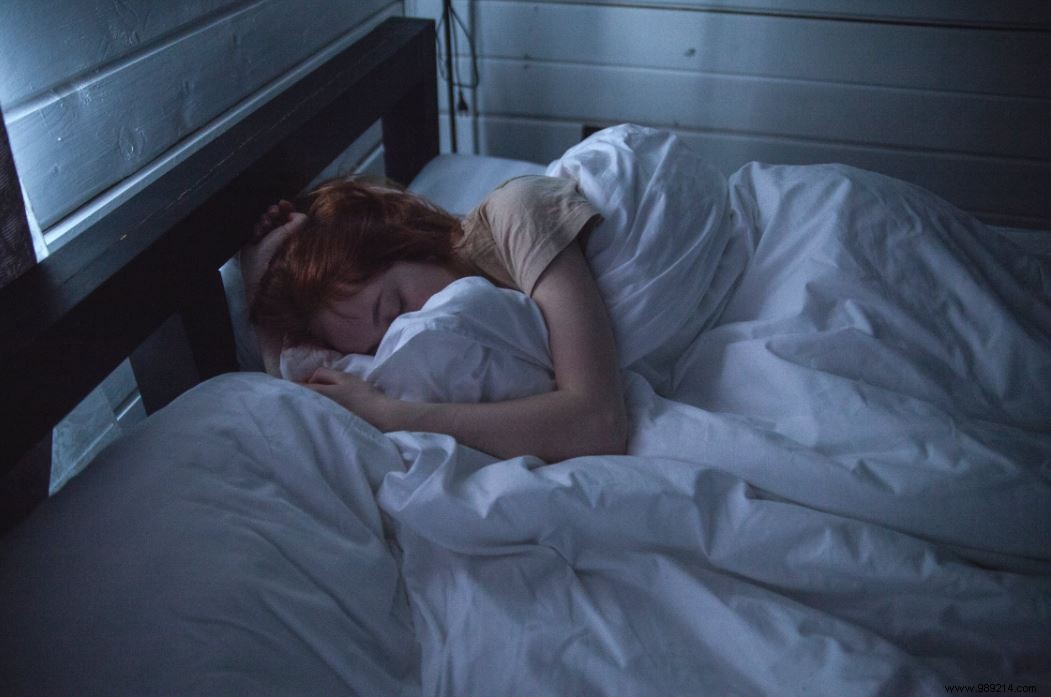Researchers based in the United States have conducted a study that could make you want to go out all night! According to this research, having an all-nighter can increase anxiety by more than a third. On the contrary, sleeping soundly can help treat anxiety.
As part of their study published in the journal Nature Human Behaviour on November 4, 2019, scientists from the University of California at Berkeley (United States) had 18 volunteers. The goal? To assess the effects of different sleep phases on participants' anxiety. As part of this research, tests were performed on the brains of volunteers, namely MRIs and sleep polygraphs . The aim was to analyze the behavior of their brains when watching moving video clips after either a sleepless night or a full night.
However, after a sleepless night the activity of the internal prefrontal cortex is idling. Remember that the latter regulates anxiety in particular. At the same time, areas of the brain related to emotions become overactive. On the other hand, a full night can restore the activity of the internal prefrontal cortex. In other words, sleeping well can reduce the level of anxiety , especially in participants who benefited from deep sleep.

Neurologist and psychologist Matthew Walker – lead author of the study – estimates that when you have a sleepless night, anxiety is 30% higher . The person concerned indicates that he has discovered an unprecedented function of deep sleep. Indeed, the latter can reduce anxiety overnight by reorganizing the connections in the brain. In other words, deep sleep acts like a natural anxiolytic , that is, a kind of non-drug anxiety suppressant.
Thus, anxiety disorders could be treated with deep sleep . It turns out that this announcement is very interesting since many people suffer from anxiety! According to the WHO in 2017, more than 250 million people have anxiety disorders worldwide.
In 2018, a Japanese researcher believed that smelling lavender had the same positive effects as drug anxiolytics. This research gave hope for the development of new less restrictive treatments against anxiety, that is, without dizziness and other dizziness.
Source
Related Articles: